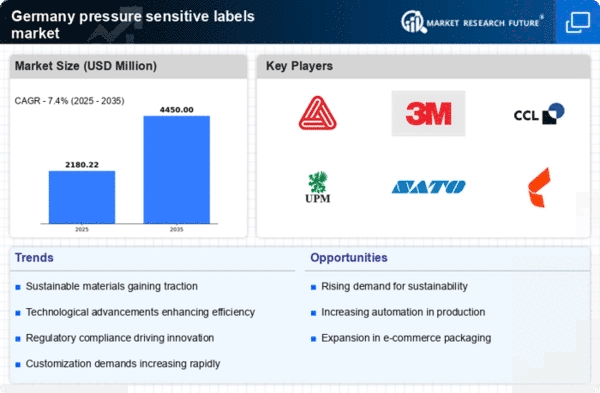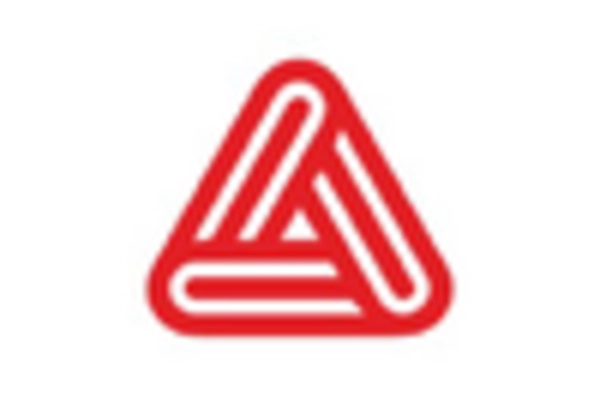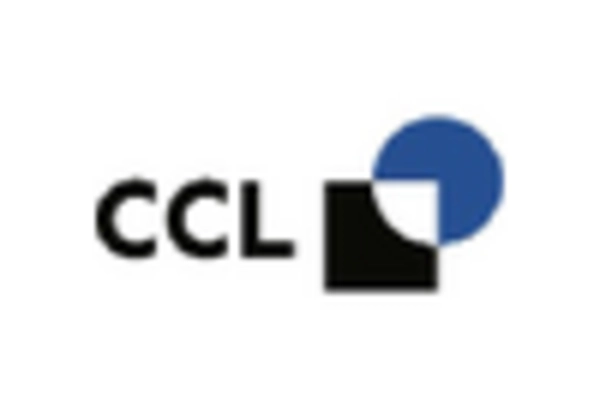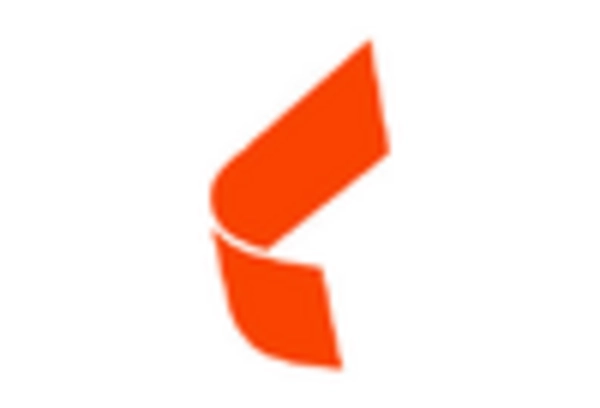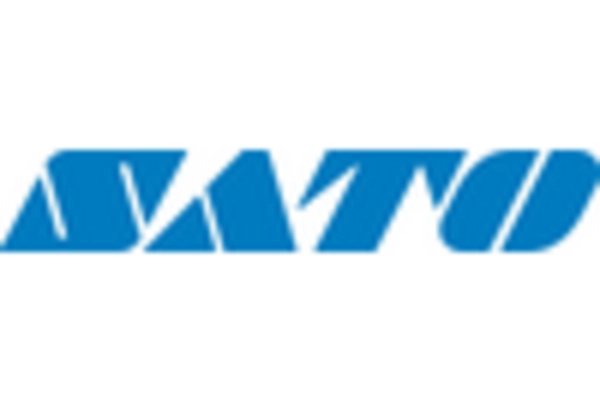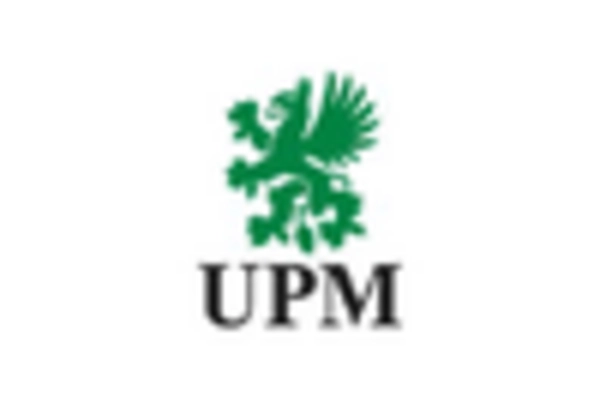Rising Demand in E-commerce
The surge in e-commerce activities in Germany is driving the pressure sensitive-labels market. As online shopping continues to grow, the need for efficient labeling solutions becomes paramount. E-commerce businesses require labels that are not only functional but also visually appealing to enhance brand recognition. In 2025, the e-commerce sector in Germany is projected to reach approximately €100 billion, indicating a robust market for packaging and labeling solutions. This growth necessitates innovative pressure sensitive-labels that can withstand various shipping conditions while ensuring product safety and compliance. The pressure sensitive-labels market is thus positioned to benefit from this trend, as companies seek to optimize their packaging processes and improve customer satisfaction through effective labeling.
Increased Focus on Product Safety
Consumer safety concerns are increasingly influencing the pressure sensitive-labels market in Germany. With heightened awareness regarding product ingredients and sourcing, manufacturers are compelled to provide transparent labeling. This trend is particularly evident in sectors such as food and pharmaceuticals, where accurate labeling is critical. The pressure sensitive-labels market is adapting by offering labels that not only comply with stringent regulations but also enhance traceability. In 2025, it is estimated that the demand for safety-compliant labels will account for over 30% of the total market share. This shift towards safety-oriented labeling solutions reflects a broader commitment to consumer protection and quality assurance.
Sustainability in Packaging Solutions
Sustainability is becoming a pivotal factor in the pressure sensitive-labels market. As consumers in Germany increasingly prefer eco-friendly products, manufacturers are responding by developing sustainable labeling solutions. This includes the use of biodegradable materials and recyclable adhesives. The pressure sensitive-labels market is adapting to these consumer preferences, with a growing number of companies committing to sustainable practices. In 2025, it is anticipated that sustainable labels will represent approximately 25% of the market. This shift not only aligns with environmental goals but also enhances brand loyalty among eco-conscious consumers, thereby driving demand for innovative labeling solutions.
Regulatory Changes and Compliance Needs
The evolving regulatory landscape in Germany is significantly impacting the pressure sensitive-labels market. Stricter labeling requirements across various sectors, including food, cosmetics, and chemicals, necessitate compliance with local and EU regulations. This has led to an increased demand for labels that meet these standards, ensuring accurate information is conveyed to consumers. The pressure sensitive-labels market is responding by developing solutions that facilitate compliance while maintaining aesthetic appeal. In 2025, it is projected that compliance-related labels will constitute around 40% of the market. This trend underscores the importance of regulatory adherence in driving innovation and growth within the labeling sector.
Technological Integration in Manufacturing
The integration of advanced technologies in manufacturing processes is reshaping the pressure sensitive-labels market. Automation and digital printing technologies are enhancing production efficiency and label customization. In Germany, manufacturers are increasingly adopting these technologies to meet the diverse needs of various industries. The pressure sensitive-labels market is witnessing a shift towards smart labels that incorporate QR codes and NFC technology, allowing for interactive consumer engagement. This technological evolution is expected to drive market growth, with projections indicating a CAGR of 5% from 2025 to 2030. As companies strive for operational excellence, the adoption of innovative manufacturing techniques will likely play a crucial role in shaping the future of labeling solutions.


